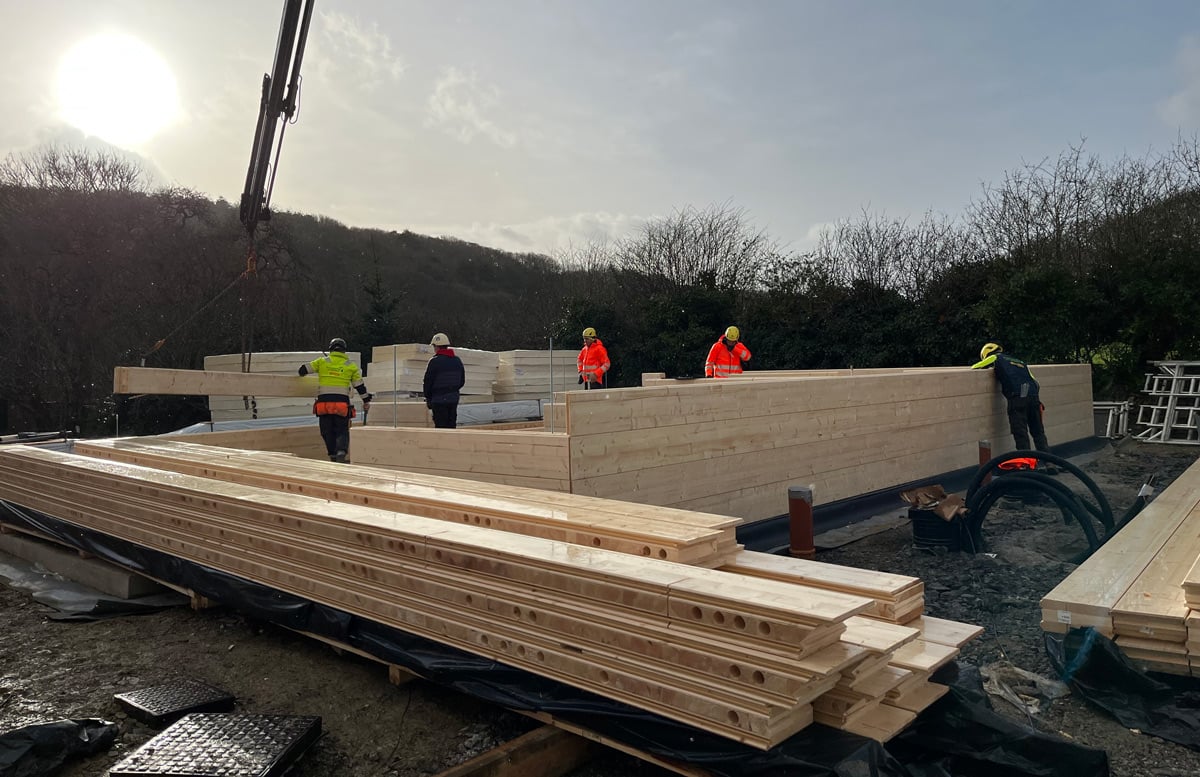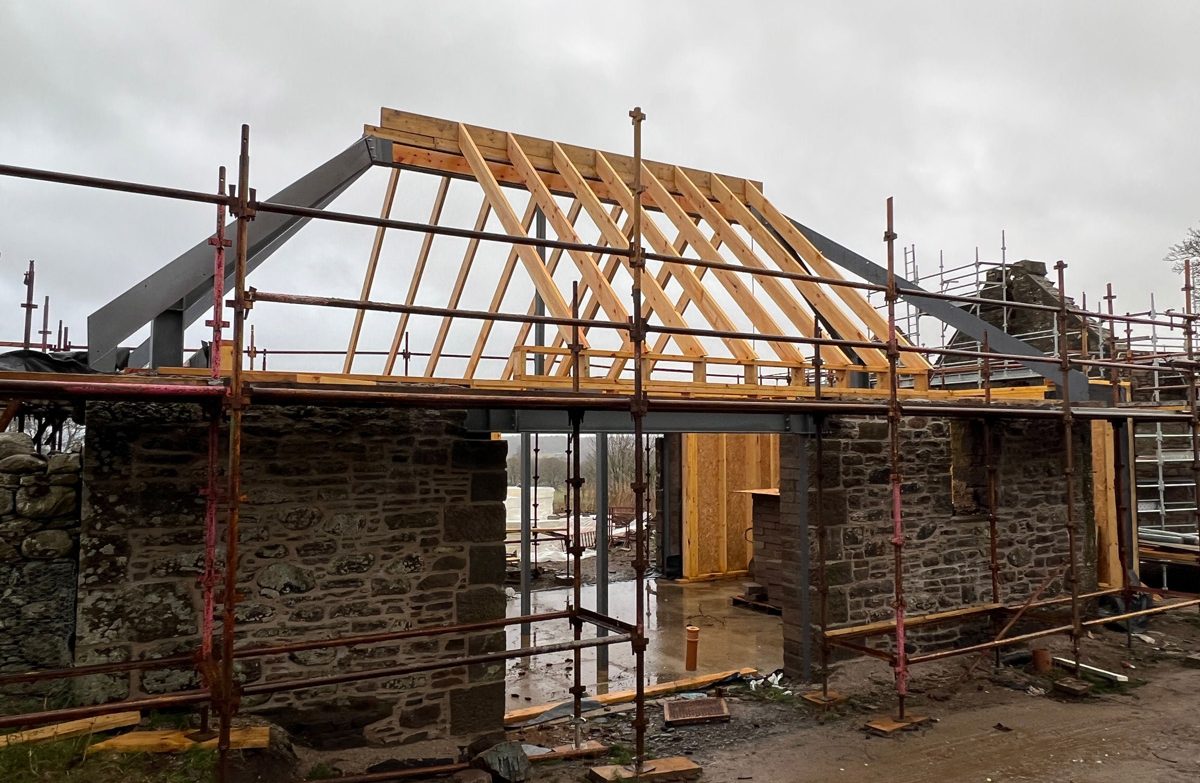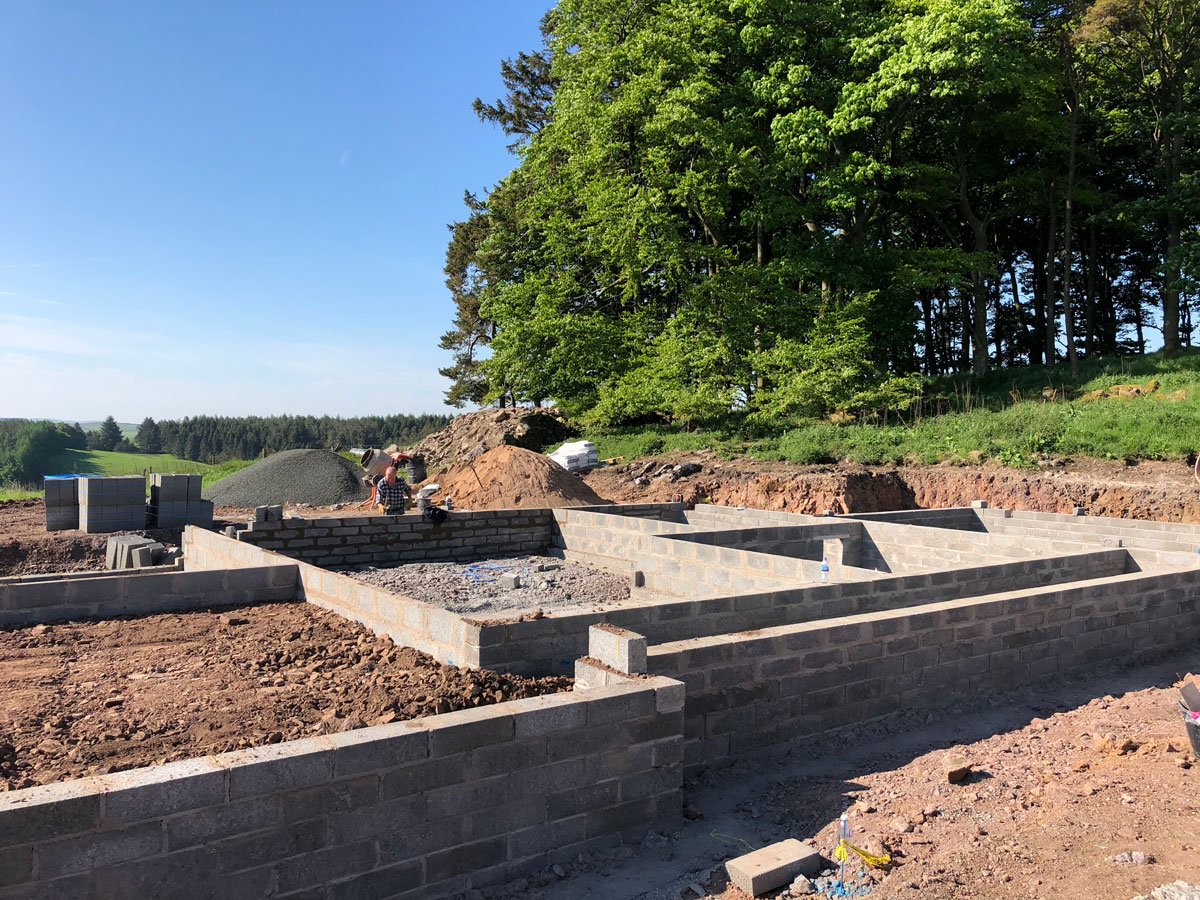A successful Self Build requires a team of specialised and experienced individuals all working towards the same goal, and there’s nothing to say you can’t be one of them. It’s the nature of a self-build to give the client a larger role in the process after all. Who doesn’t want to oversee building their own home?
Despite the initial thrill of building your own home, the increased weight of responsibility resting on your shoulders to keep everything on schedule, be compliant and manage the contractors may prove too much to bear for some. This is where a professional can come in.
Every good project needs a leader, and that leader may come in the form of a Project Manager (PM). An often-overlooked role in the Self-Build sector. An effective project manager can set realistic timelines, allocate resources efficiently, and establish a budget that aligns with your financial situation. We sat down with Samuel James Project Management to find out more about the relationship between Project Management and Self-Build.
WHAT DOES A PROJECT MANAGER DO?
A Project Manager is a professional who oversees and manages the various aspects of the construction process from initial design to finished product. Their role encompasses planning, communication, problem-solving and team coordination to ensure the build is managed efficiently and competitively, mistakes are prevented and above all the project is finished to the highest standards, on time and within budget.
A Project Manager’s job is to bridge the gap between the client and the team of professionals. In most cases, a PM will source specialists for your self-build and will be responsible for their performance and the negotiation of their pricing structure.

WHAT KIND OF BACKGROUND SHOULD MY PROJECT MANAGER HAVE?
Now that you know what a project manager does, you need to find the right one for you. Like all construction professions, some individuals will have more experience in the self-build sector. Those who have this experience will know how to get the best out of everyone involved in the project, including you as the client.
An effective PM will also have experience in projects that utilise modern building technologies such as SIPs and Timber Frame.
In our experience, the best project managers are the ones who have either been heavily involved or run their own construction company, which allows them to bring their expertise on-site as well from the office.
Industry experts meticulously craft standard forms of construction contracts. Organisations like the SBCC in Scotland and the JCT in England develop these contracts to meet the specific needs of the construction industry in their respective regions.
THE SELF BUILD PROCESS UNDER A PROJECT MANAGER
Once planning permission has been granted, some self-builders get stuck on what to do next. This is a great place for a PM to take the reins and guide them into the construction phase, as they begin to assemble their crack team of professionals.
One of the first professionals a PM will hire is a Quantity Surveyor. A Quantity Surveyor is imperative to creating a clear build budget, as they can help create a cost plan before the build starts. There is nothing worse than going over budget, and being prepared for any snags and setbacks along the way alleviates all the stress from the self-builder. This service can cost between £1500 – £2000 but is worth the investment for the project’s wellbeing.

Throughout the process, a PM makes sure that the project is constantly aligned with the client’s vision and expectations. This is done by establishing a line of communication between the client, the PM and all professionals involved in the build. A good project manager should not be afraid to make tough decisions to deliver on your dream home.
PMs also work with architects to make sure your proposed build complies with any regulations that must be met, including compliance with building control and health and safety protocols. This is why it’s so important to have a good architect on board.
CAN A PROJECT MANAGER WORK ON A PROJECT THAT IS ALREADY UNDERWAY?
THE BENEFITS OF PROJECT MANAGEMENT
The key benefits of project management come in four factors:
Controlling Costs
Effective project management allows for the careful allocation of resources, including labour, materials, and equipment. This ensures that each component of the self-build project is adequately accounted for, reducing the likelihood of unexpected delays or cost overruns. By monitoring expenses and adhering to a budget, project managers help keep the project financially viable and prevent potential setbacks.

Relieving Stress
Running your self-build can be a rewarding endeavour, but without first-hand experience in managing a project of this size, a level of stress can come along with it. Self-build projects are inherently prone to uncertainties. PMs ensure that a project runs smoothly, to make it a more enjoyable process for you as the client.
Trusted Timeframe
Time is of the essence in any construction project, and self-builds are no exception. Project managers play a critical role in establishing realistic timelines, setting milestones, and tracking progress to ensure that the project stays on schedule. This not only helps in timely completion but also enhances efficiency by outlining the sequence of tasks and preventing unnecessary delays.
Quality Assurance
Beyond timeliness and budget adherence, project management in self-build projects emphasises the importance of quality assurance. Project managers are responsible for implementing and monitoring quality control processes to ensure that construction meets industry standards and complies with building codes. This commitment to quality is vital for the longevity and safety of the finished structure.
The cost of a Project Manager can either be percentage-based or an hourly rate. Percentage-based project managers tend to cost around 5% to 10% of your build cost, whilst an hourly rate typically works out at around £800 per week.
The cost of a Project Manager completely depends on their level of involvement in the project. If a PM is managing each individual trade, this will take up more time and therefore more of your budget.
Adding yet another cost to the budget of your build with a Project Manager can scare away some self-builders, leading them to cut corners and cause problems. Bringing a professional on board could be the right step in managing the project.

When you summarise the points made in this article, you can see that the significance of project management in self-build projects cannot be overstated. Their assistance in building a robust cost plan and an efficient timeframe takes a weight off the self-builder’s shoulders. It all comes down to making that initial investment.
In our experience, if a project starts well, it will continue well. This is why it is so important to go in with a well-thought-out plan before you begin construction.
As a self-builder, nothing is stopping you from managing the project yourself. However, be prepared for the high level of responsibility that comes with it. Cutting corners creates new problems financially. The addition of a project professional can help smoothen the process, and can even save you money in the long term.
We would like to thank Simon Dane for his expert contribution to ACA’s blog. If you would like to learn more about Samuel James Project Management and its services, visit their website and contact their team to discuss your project.





